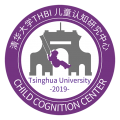Current Study
Research 1: Cross-cultural Differences in Infants' Analogical Reasoning
Cultural differences exist in how an individual thinks about the world. Prior research indicated that people in the Eastern culture pay greater emphasis on collectivism and tend to focus more on relations, while people in the Western culture are more individualism-oriented and focus more on categories.
Analogical reasoning is a cognitive ability essential to human learning and development. The ability for children to understand relations is considered a milestone in children’s cognitive development. Since both thinking style and analogical reasoning tendency play essential role in human’s understanding of the world, we would like to explore whether a similar cross-cultural difference exists in adults’ tendency of analogical reasoning.
So far, very few researches have been done regarding cross-cultural differences in adults’ analogical reasoning tendency. Through our research, we aim to explore the cognitive basis of thinking style and analogical reasoning, and to gain a deeper understanding of how culture shapes the way we think about the world.
Currently this work has appeared in the top conference of cognitive science: The Annual Conference of Cognitive Science Society. Zhang, J., & Christie, S. (2021). East-west revisited: Is holistic thinking relational thinking?. T. Fitch, C. Lamm, H. Leder, & K. Teβmar-Raible(Eds.), Proceedings of the 43th Annual Conference of the Cognitive Science Society. Vienna, TX: Cognitive Science Society.
Research 2: A cross-cultural and cross-domain study on analogical reasoning development in children
The ability of analogical reasoning is a hallmark of human cognition. This ability helps us learn languages, solve new problems, and make scientific discovery. When we find that two things are similar in some properties, we infer that they are similar in other properties. Recent research has found that eastern children are better at relational reasoning than western children. However, this finding is still very controversial.
In our research, we are going to inverstigate two questions using the classical RMTS paradigm: 1. Does culture influence the development of analogical reasoning? If so, are Asian children better at relational reasoning than Western children? 2. Is the development of analogical reasoning domain-general?

